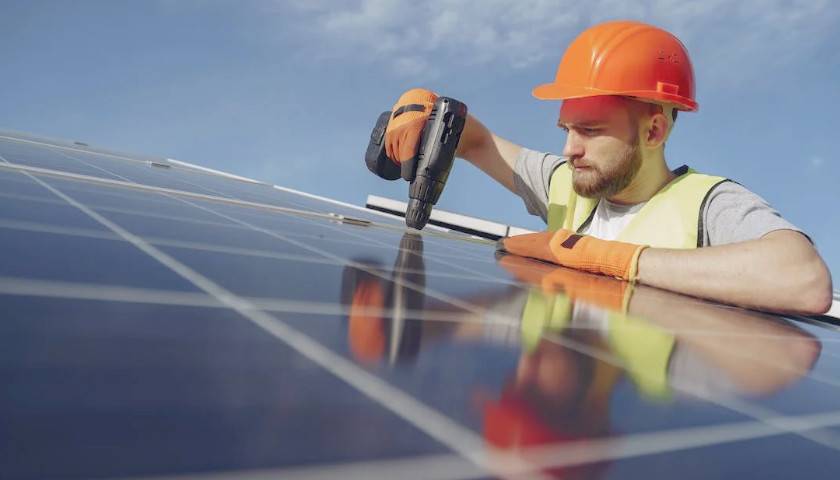by Morgan Sweeney
Virginia marches toward a greener future with its 2024 legislative session halfway through.
Clean energy enthusiasts in the House of Delegates and the Senate continue to build on the momentum gained by the passage of the Virginia Clean Economy Act, with legislation promoting the use of electric vehicles, energy efficiency, renewables, solar energy and greener buildings. Here’s a roundup of legislation that has been successful so far.
Electric Vehicle Rural Infrastructure Program and Fund – Sponsored by Del. Richard Sullivan, Jr., D-Fairfax, House Bill 107 establishes an Electric Vehicle Rural Infrastructure Program and Fund to help developers cover the cost of installing public electric vehicle charging stations in economically distressed areas.
The bill passed the House of Delegates with bipartisan support, 71-27.
Greener buildings – Bills to this end were introduced in both the House and Senate. Del. Dan Helmer, D-Fairfax, and Sen. Jeremy McPike, D-Prince William, sponsored bills requiring the state’s Department of Energy to assist localities in meeting energy and resilience standards while constructing or renovating certain public buildings.
Sen. Barbara Favola, D-Arlington, also sponsored a bill requiring new public schools, other large public buildings (bigger than 5,000 gross square feet), and certain renovations to be built to net-zero energy consumption standards. This includes “sufficient electric vehicle charging infrastructure.”
Each legislation passed its respective chamber mostly along party lines, though there was some Republican support for Helmer’s bill.
Energy efficiency standards – HB 950 by Del. Alfonzo Lopez, D-Arlington, allows localities to adopt stricter energy efficiency standards than the Uniform Statewide Building Code mandated.
Grid-enhancing technologies and transmission lines – With the continued proliferation of energy-consuming data centers, an increasing general energy demand and Virginia’s tireless pursuit of its clean energy goals, the state’s utility providers are always working to increase energy output. Some providers have planned to do so by installing more transmission lines, but — like data centers — that has also faced backlash.
Del. Phil Hernandez, D-Norfolk, introduced a bill requiring Virginia’s utility companies to incorporate grid-enhancing technologies into the years-long planning and approval process for new power lines, with the goal of avoiding new lines altogether. Grid-enhancing technologies are hardware or software that maximize the energy output of existing power lines and can help “decarbonize the grid,” according to the United States Department of Energy.
The bill passed 58-39 in the House.
Solar energy – Several bills regarding solar energy have been passed in the House or Senate. Lawmakers introduced companion bills on shared solar programs and net energy metering.
Sullivan and Sen. Scott Surovell, D-Fairfax, sponsored bills expanding the existing shared solar programs, which “allow customers to purchase subscriptions for electricity directly from a shared solar facility that is owned, operated and managed by a private entity,” according to the Virginia Department of Energy.
Del. Rodney Willett, D-Henrico, and Sen. Suhas Subramanyam, D-Loudoun, introduced bills on net energy metering that would allow homeowners to lease rooftop solar panels rather than buy them, eliminate some administrative requirements and exempt homeowners with solar panels and battery storage devices from standby charges.
Del. Carrie Coyner, R-Chesterfield, Sen. Ghazala Hashmi, D-Chesterfield, Sen. Schuyler VanValkenburg, D-Henrico, also carried solar panel legislation.
– – –
Morgan Sweeney is a staff writer covering Virginia and Maryland for The Center Square. Morgan was an active member of the journalism program as an undergraduate at Hillsdale College and previously freelanced for The Center Square.




